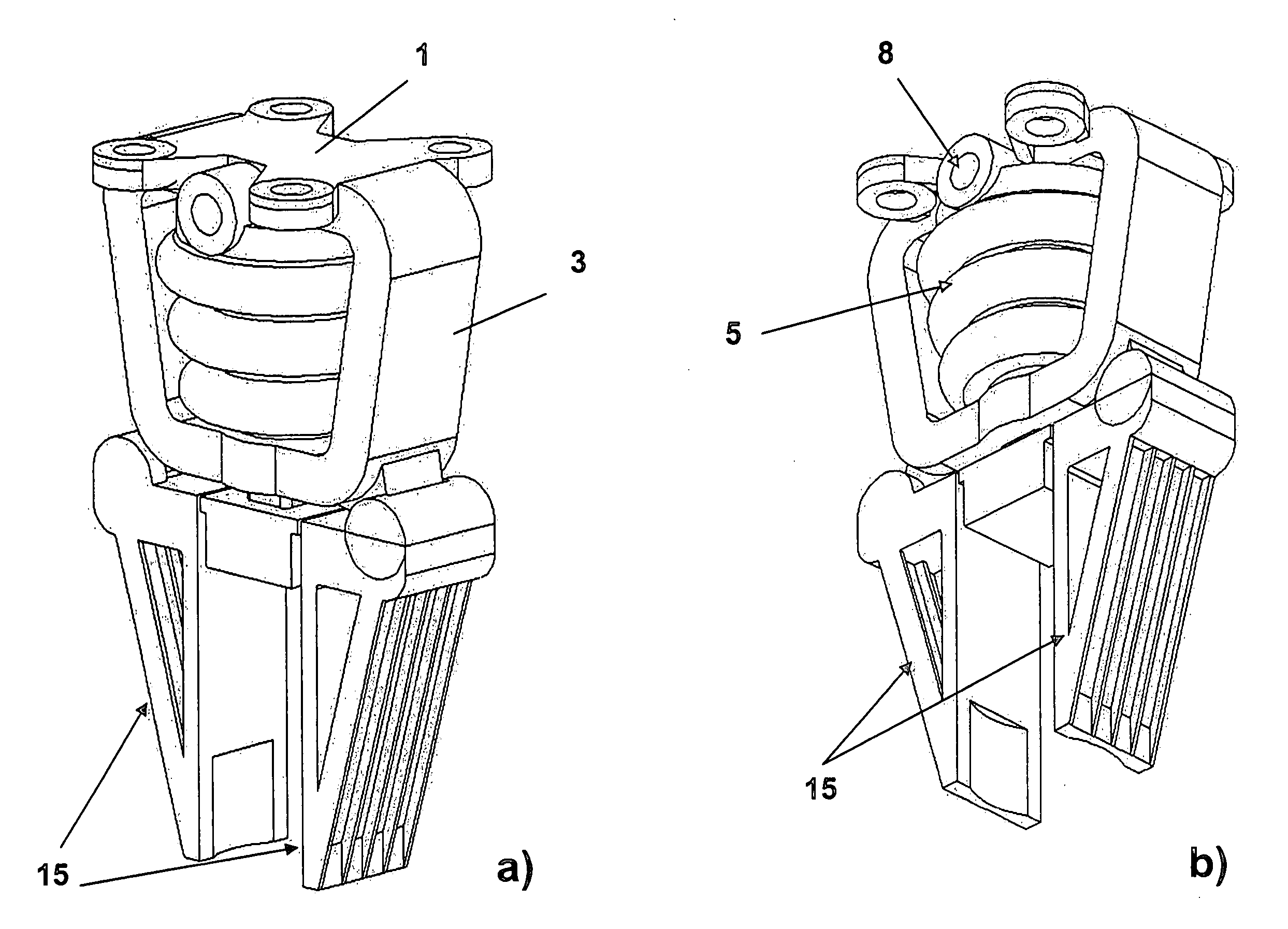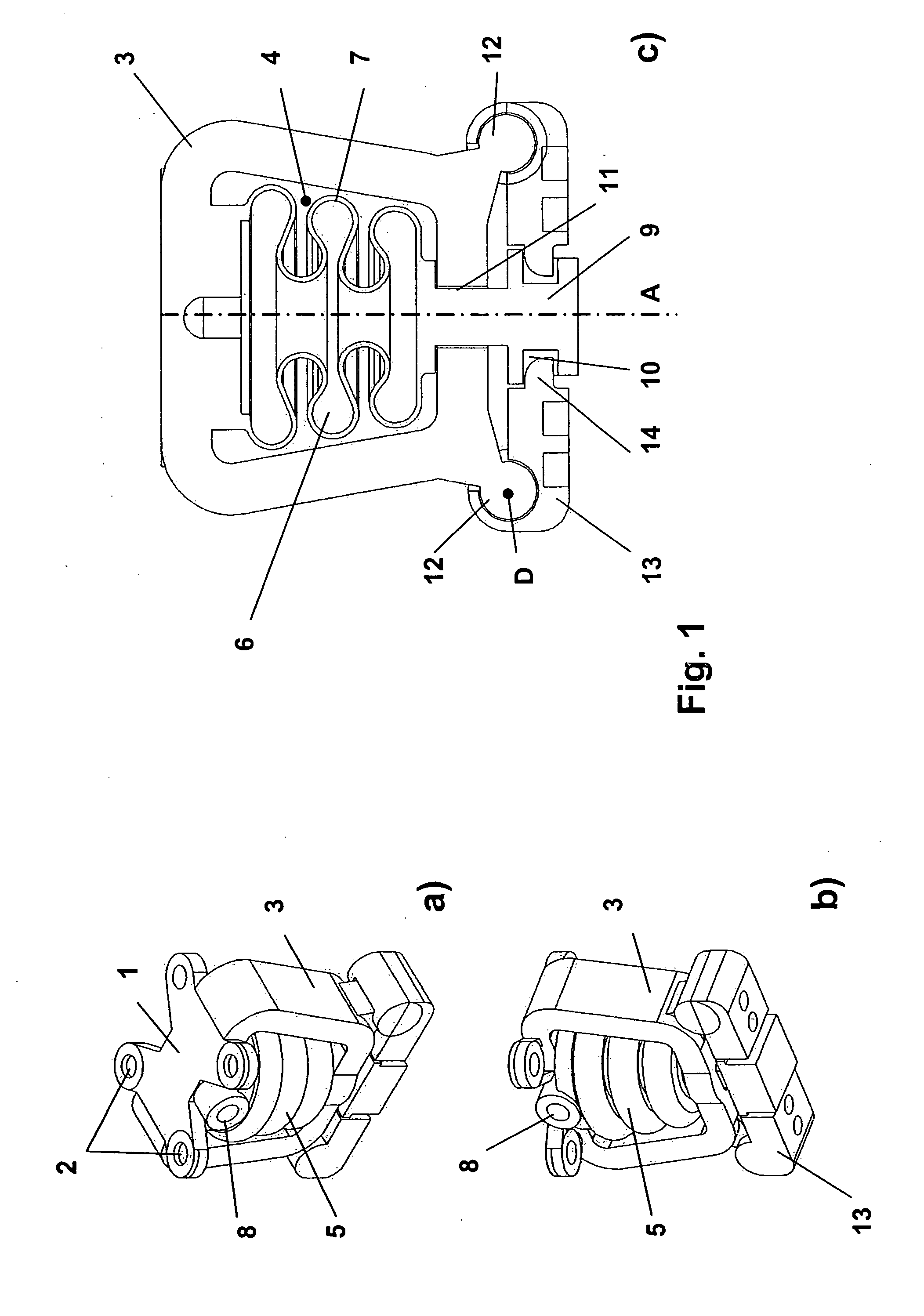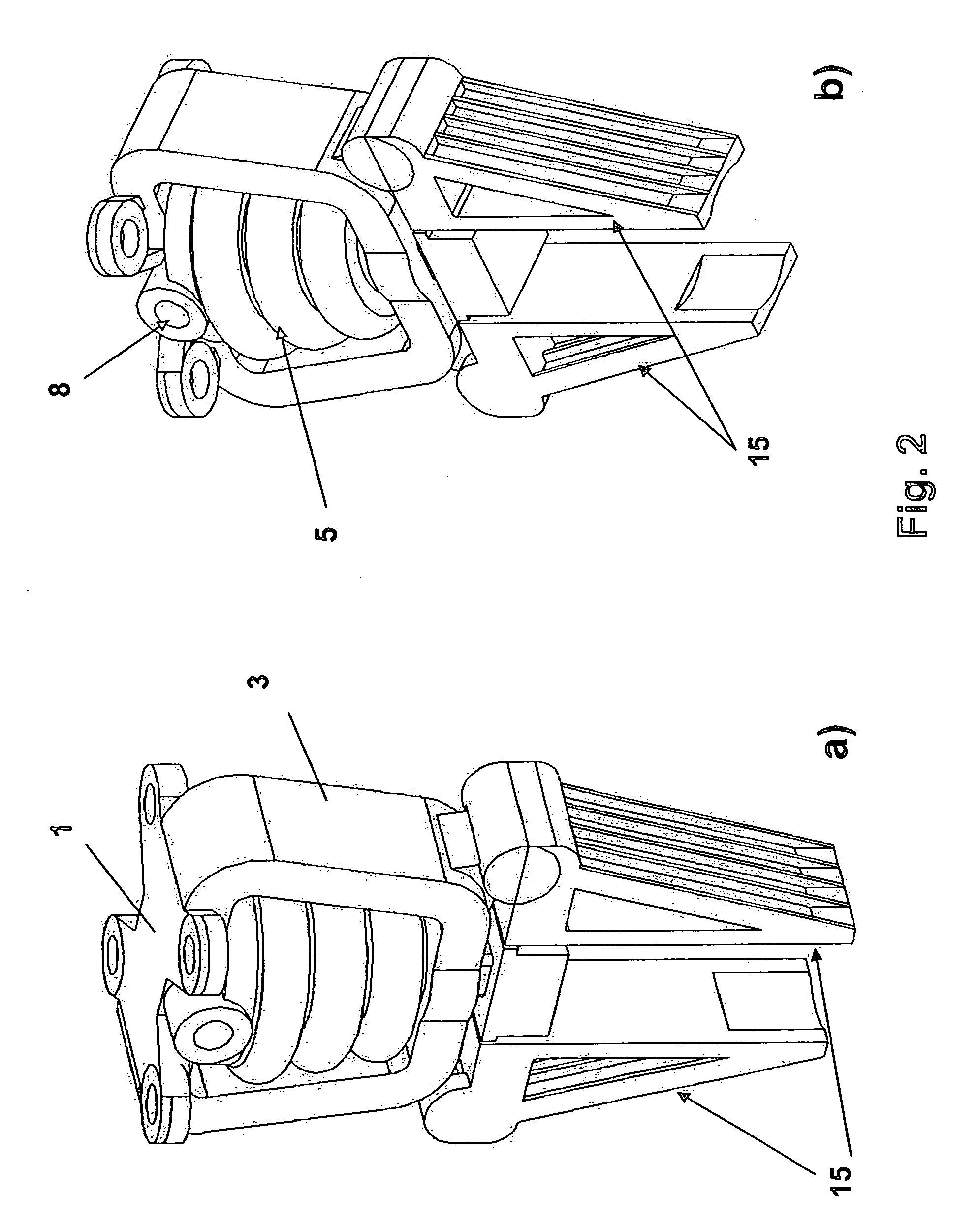Robot Gripper and Method for Its Manufacture
a robot and gripper technology, applied in the field of robot grippers, can solve the problems of insufficient assembly quality of assembled components and assembly itself, the quality of the assembled components is too low, and the manufacturing process requires both cost-intensive assembly and reliable quality control
- Summary
- Abstract
- Description
- Claims
- Application Information
AI Technical Summary
Benefits of technology
Problems solved by technology
Method used
Image
Examples
Embodiment Construction
[0012]The problem addressed by the invention is to extend a robot gripper of the type previously described with a fixing flange for detachably attaching it to a robot manipulator arm, and with at least one actuator element which is supported in a frame, that actuates at least two gripper jaws indirectly or directly kinematically via at least one articulated unit, in such a way that the manufacture of such a robot gripper is simplified, cheaper and faster in comparison to the assembly techniques used to date. It should thus be possible to manufacture a robot gripper individually adapted to a specific gripping task even in very low quantities at an economically viable cost, and this with a gripper quality which in no way compromises on the functionality or the service lifetime of the gripper system. It should thus moreover also be possible to manufacture a robot gripper to any chosen scaling, without having to accept a large outlay in terms of assembly effort and cost.
[0013]The soluti...
PUM
 Login to View More
Login to View More Abstract
Description
Claims
Application Information
 Login to View More
Login to View More - R&D
- Intellectual Property
- Life Sciences
- Materials
- Tech Scout
- Unparalleled Data Quality
- Higher Quality Content
- 60% Fewer Hallucinations
Browse by: Latest US Patents, China's latest patents, Technical Efficacy Thesaurus, Application Domain, Technology Topic, Popular Technical Reports.
© 2025 PatSnap. All rights reserved.Legal|Privacy policy|Modern Slavery Act Transparency Statement|Sitemap|About US| Contact US: help@patsnap.com



